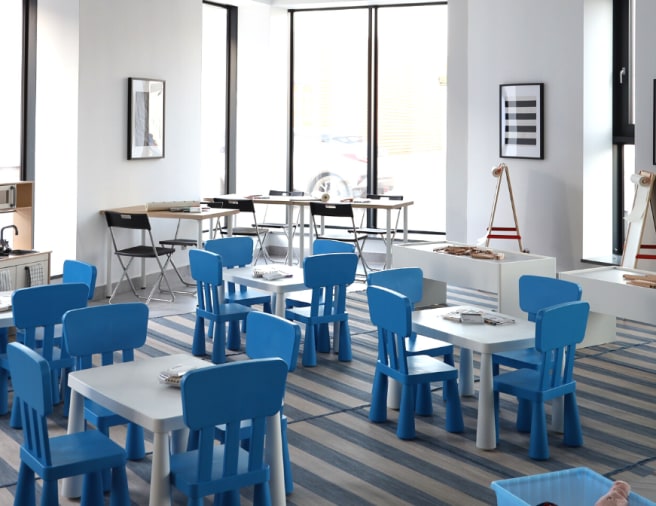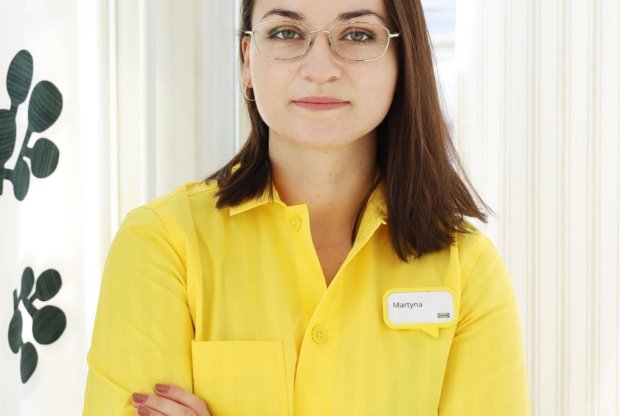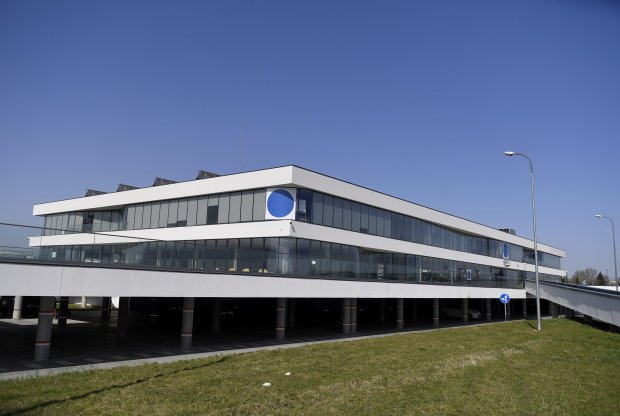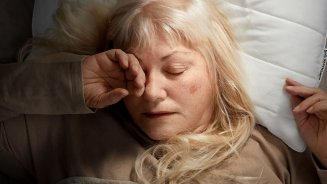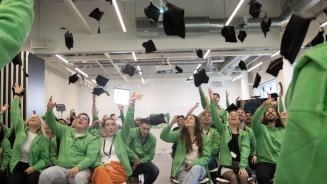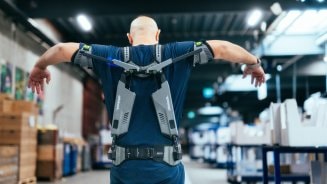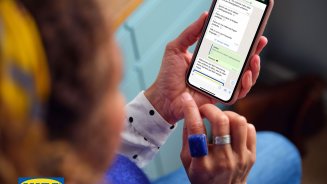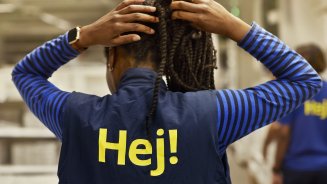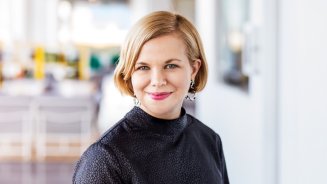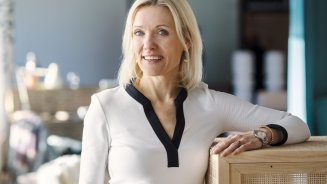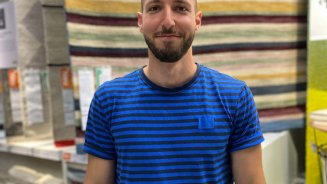Before the war in Ukraine began, Martyna Pater’s main task as an Interior Design Specialist working in Kraków for IKEA Poland was to help customers design great spaces in their homes. But that changed when UNICEF and UNHCR, the UN Refugee Agency, reached out. They wondered if IKEA could support the work in helping to design safe spaces, called ‘Blue Dots’, to support refugees fleeing the war in Ukraine.
“The work calls for a whole new set of skills because we’re designing spaces that can support people who are experiencing trauma,” Martyna says.
Blue Dots are support hubs that bring together critical protection services and information with a particular focus on children and those at greatest risk. These include unaccompanied and separated children, persons with disabilities, cases of suspected trafficking, survivors of sexual or gender-based violence and refugees from the LGBTQ+ community. UNHCR and UNICEF establish Blue Dots together with local authorities and partners along the major crossing points and transit routes. Blue Dots can also be found in UNHCR cash enrolment centres such as the Tauron Arena in Kraków, and provide a safe space, support and referrals for health care, education, psychosocial support and more.
“We’re designing spaces for children that are cozy and playful, but we use low furniture so their parents can see them when they are speaking to advisors,” she says.
Blue Dots jointly established by UNICEF and UNHCR
As of 10 June, 36 Blue Dots have been established in Bulgaria, Hungary, Italy, Moldova, Poland, Romania and Slovakia, with more in planning.
“By far, most of the refugees who have fled unimaginable loss and devastation in Ukraine are women, children and older people or people with disabilities, in need for dedicated support. Thanks to our great collaboration with IKEA, we can design comforting Blue Dot spaces where refugees at greater risk can find a moment to rest, feel safe and protected again, access reliable information, counselling and psychological support, all in effort to have them start healing and recovering from traumatizing events,” says Marin Din Kajdomcaj, UNHCR’s Representative in Poland.
Milena Harizanova, UNICEF’s Chief of Child Protection, says families are coming for support to Blue Dots after hours and sometimes days of exhausting journeys. “That is why it is so important to make these spaces as safe and calming as possible,” she says. “We are thankful to colleagues from IKEA who have put their hearts and minds into carefully designing these Blue Dot spaces, focusing on the needs of refugee children and families.”
The IKEA support to UNICEF and UNHCR, including the Blue Dots, forms part of a larger donation by different IKEA-related entities. This includes in-kind donations of products, along with design expertise and support for logistics, infrastructure and delivery from Ingka Group, as well as a monetary donation from Inter IKEA Group.
Design from IKEA across several countries bordering Ukraine
So far, IKEA Poland has supported Blue Dots and reception centers in Przemyśl, Rzeszów, Medyka, Kraków and Warsaw with a further three locations in the development and delivery stage.
Outside of Poland, IKEA businesses have supported the set-up of Blue Dots in other countries including Romania, and discussions are underway to additionally support Blue Dots and reception centers in Hungary and Slovakia.
Laurentiu Stefan Serban works as a Visual Merchandiser and Shop Designer in Bucharest for IKEA Southeast Europe. But he has recently been using his hands-on expertise to support the set-up of Blue Dots in Romania. He also brings previous experience of designing homes to shelter refugee families.
When designing for people who have experienced trauma, Stefan says that you need to think differently. “It’s all about a fast response and providing a comfortable safe space,” he says. “The aim is to create an environment where people can recover and find their strengths again.”
Stefan says the first step when arranging layouts for Blue Dots is to “focus on setting up a space for people to sleep, eat and to provide storage. Next, I focus on creating a space for recovery, praying and starting consultations.”
A hybrid solution to support for all types of locations
UNICEF and UNHCR called on the IKEA business for support to develop a concept that can be deployed across all Blue Dots irrespective of location and size. For this, a hybrid solution has been developed where the expertise and availability of IKEA co-workers from home furnishing design, market support and on-site experience in Poland and Romania are pitching in to support.
Martyna says the design aims to work for both open and private spaces. “We’re using walls made of Kallax shelving units and thick curtains to create a quieter and more comfortable environment, to make it feel more like a home, and we’ve also used decorations and picture frames, to make the space feel as cozy and calm as possible,” she says.
After more than 100 days of war, more than one third of Ukraine’s population has been forced to flee within the country or have fled to neighbouring countries. Over 90 percent of all refugees from Ukraine are women and children, as well as older people, who are at significant risk of family separation, violence, abuse, sexual exploitation, and trafficking.
“With thousands of people coming to the hubs, you also have to think about crowd control and creating good signage that helps people move through the space so they can find the right support they need,” Martyna says.
Long-term collaboration
UNICEF and IKEA entities have collaborated and partnered for over twenty years to help advance children’s rights in programmes worldwide. IKEA has previously supported UNICEF’s water and sanitation, nutrition and education programmes as well as UNICEF’s work in emergencies.
“The war in Ukraine is a human tragedy. To support emergency relief efforts for both immediate and long-term needs, many stakeholders and organisations need to work together. Our donation to UNICEF and the IKEA support to UNHCR will help provide children and families with critical access to basic services including clean water, hygiene supplies, healthcare, access to education and recreational activities, and emergency cash assistance,” said Malin Pettersson-Beckeman, Head of Sustainability Engagement & Communications, Inter IKEA Group.
In addition, since 2014, IKEA has been empowering refugees across diverse aspects of the business and working with partners such as UNHCR. Through this collaboration, IKEA acts on its long-term commitment to change the narrative around refugees and challenge people’s biases.
“We have a long-standing commitment to supporting children’s rights and are devastated by the impact on children fleeing the war. By using IKEA home furnishing knowledge and products we are able to support UNICEF and UNHCR to provide safe and welcoming places for children and families to rest, play and get access to services they so desperately need right now,” says Julia Olofsson, Human & Children’s Right Leader, Ingka Group, the largest IKEA retailer.
Media enquiries
For further information, journalists and media professionals can contact us at [email protected] or by calling +46 70 993 6376.
